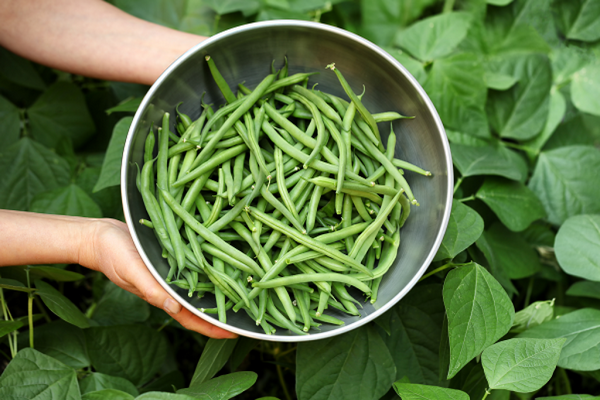Located more than 2,000 miles from the continental U.S., Hawaii imports about 85-90% of its food, making it vulnerable to food supply disruptions, according to the State of Hawaii's Department of Business Economic Development & Tourism. Additionally, the state struggles with an aging farmer population and a lack of farm labor. As USDA's National Institute of Food and Agriculture (NIFA) celebrates Asian American and Native Hawaiian/Pacific Islander (AANHPI) Heritage Month, NIFA is proud to support the University of Hawaii (UH) as it grows the state's next generation of farmers.
The University of Hawaii (UH) recognized the need to develop new farmers focused on commercial production and aid existing farms to increase yield and profitability.
A UH Extension team created GoFarm Hawaii (GFH) to develop and support commercial farmers who are well prepared to meet production and business challenges and immediately contribute to the state's food sustainability goals.

NIFA's Alaska Native-Serving and Native Hawaiian-Serving Institutions Education Competitive Grants Program (ANNH) provides crucial funding support for GFH.
NIFA National Program Leader Kellyann Jones-Jamtgaard said the GoFarm Hawaii project is a strong example of the ANNH program's goals.
"The ANNH program seeks to strengthen the ability of Alaska Native-Serving and Native Hawaiian-Serving Institutions to carry out education, applied research, and community development programs," Jones-Jamtgaard said. "GoFarm Hawai'i accomplishes the program's goals by focusing on improving food sustainability and the local economy by engaging adult learners in experiential learning throughout the state. Additionally, GFH actively engages with Native Hawaiian farmers and businesses and incorporates indigenous agricultural practices into its programming."
GoFarm Hawaii uses a variety of outreach methods to engage not only potential new farmers but current farmers looking for ways to improve their operations. In Fiscal Year 2022, GoFarm Hawaii hosted events to reach newcomers to farming while teaching more in-depth content at multi-day workshops and schools. Additionally, Extension professionals conducted more than 60 one-on-one business consulting sessions to support existing farming operations and taught sessions on topics including on-farm scaling and value-added product development.
Of the post-high school agriculture training programs available, GFH is the only one with statewide reach and the only one that incorporates production, business, and ongoing support after graduation. The program prepares students for careers in agriculture, allowing many to start independent businesses, improve business practices or obtain employment within the agricultural industry while building capital and experience to start a business. In addition, GFH is the only agriculture-focused business education and consulting program in the state.
The UH Extension team's efforts are paying off. More than 40 GFH graduates began farming commercially, while other graduates are working for others in farming or supporting the food system. GFH is reaching important underserved groups, with a significant number of participants who are ethnic minorities or women. The GFH program is succeeding in developing new farmers, and program demand continues to grow.
Source: nifa.usda.gov
